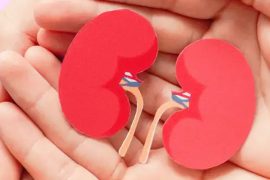Winter, often considered the dreamiest season, can quickly become a nightmare for your digestive health if you’re not mindful of your lifestyle. The season encourages increased consumption of processed and deep-fried foods due to a heightened appetite, while simultaneously discouraging hydration, as people may neglect thirst signals in the cold. This combination can be detrimental to the digestive system, leading to harder stools and reduced bowel movements.
The shorter days and colder temperatures may also contribute to a sedentary lifestyle, with more time spent in the comfort of bed, disrupting fitness routines and reducing overall activity levels. The risk of constipation rises with a combination of unhealthy eating, lack of physical activity, and insufficient hydration. As winter sets in, subtle changes in habits, such as bundling up in warm layers and indulging in hot beverages, may inadvertently contribute to digestive issues, particularly constipation.
It’s crucial to be aware of these factors and make conscious efforts to maintain a balanced diet, stay hydrated, and engage in regular physical activity to support digestive health during the winter season.
Winter habits can inadvertently contribute to constipation:
Winter habits can inadvertently contribute to constipation. Here are common practices during the colder months that may lead to digestive issues:
1. Hydration:
Cold weather tends to diminish the sensation of thirst, causing people to overlook the importance of staying hydrated. Insufficient water intake can lead to hardened stools and constipation. It’s essential to consciously drink water regularly, even if the usual thirst signals are diminished.
2. Fiber Intake:
Winter diets often gravitate towards comfort foods that may lack sufficient fiber. Fiber adds bulk to stools and facilitates their smooth passage through the digestive tract. Including fiber-rich foods like whole grains, fruits, and vegetables in your winter diet can help prevent constipation.
3. Physical Activity:
Cold temperatures may discourage outdoor activities, resulting in a more sedentary lifestyle. Physical activity stimulates the digestive system and aids in preventing constipation. Incorporating indoor exercises or activities into your routine can promote regular bowel movements.
4. Consumption of Dehydrating Beverages:
Warm beverages like coffee, tea, and hot chocolate are popular choices in winter. However, excessive consumption of these drinks, particularly those containing caffeine, can have a dehydrating effect, potentially contributing to constipation. It’s important to balance these beverages with an adequate intake of water.
5. Processed Foods:
Winter indulgences often include processed and refined foods, which may lack the necessary nutrients and fiber. Excessive consumption of such foods can contribute to constipation. It’s advisable to reduce the intake of processed foods and prioritize a balanced diet.
Recognizing these winter habits and making small adjustments, such as emphasizing hydration, increasing fiber intake, incorporating physical activity, and being mindful of beverage choices, can significantly help prevent constipation during the colder months.
Disclaimer:
The information contained in this article is for educational and informational purposes only and is not intended as a health advice. We would ask you to consult a qualified professional or medical expert to gain additional knowledge before you choose to consume any product or perform any exercise.








